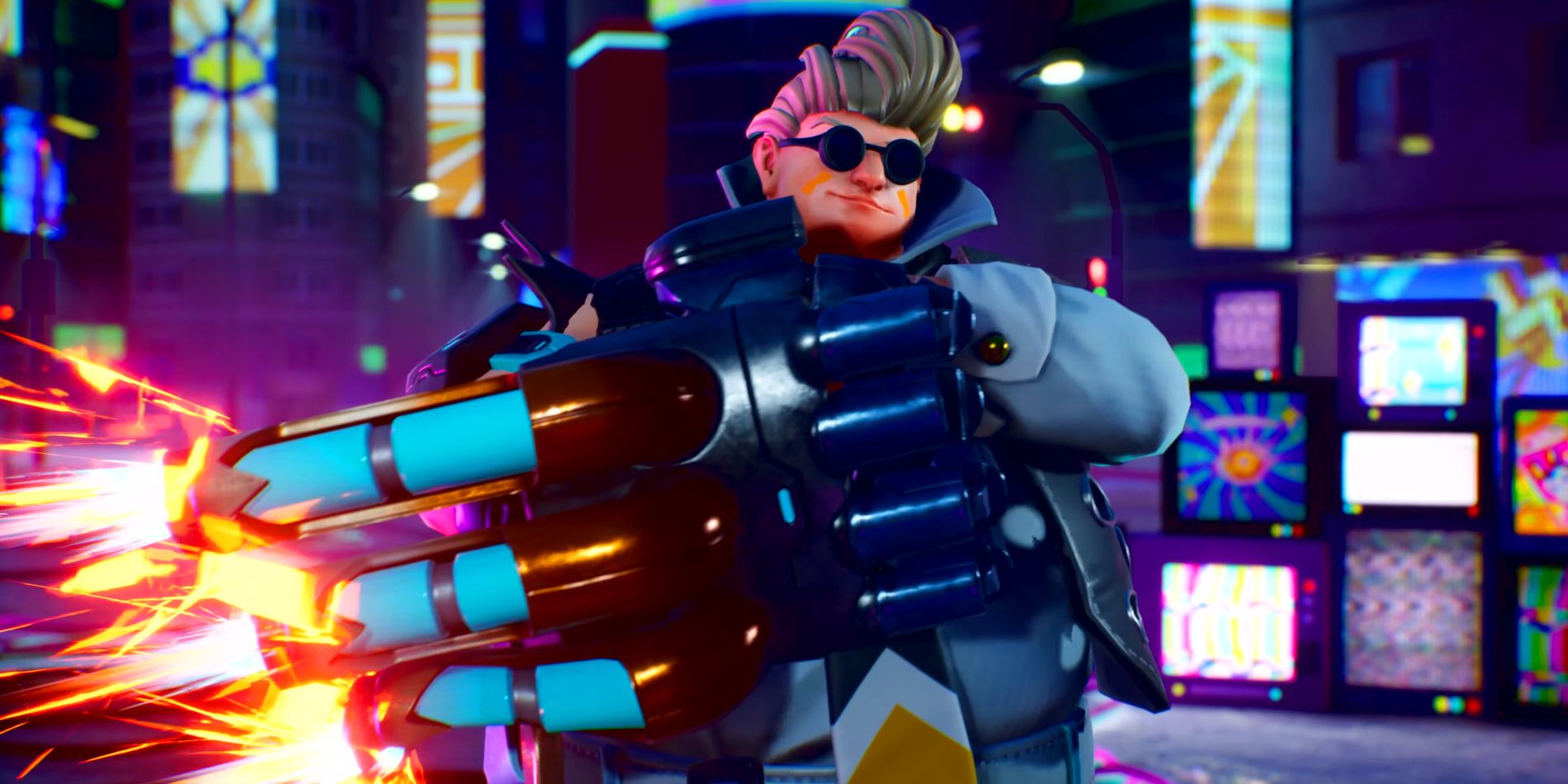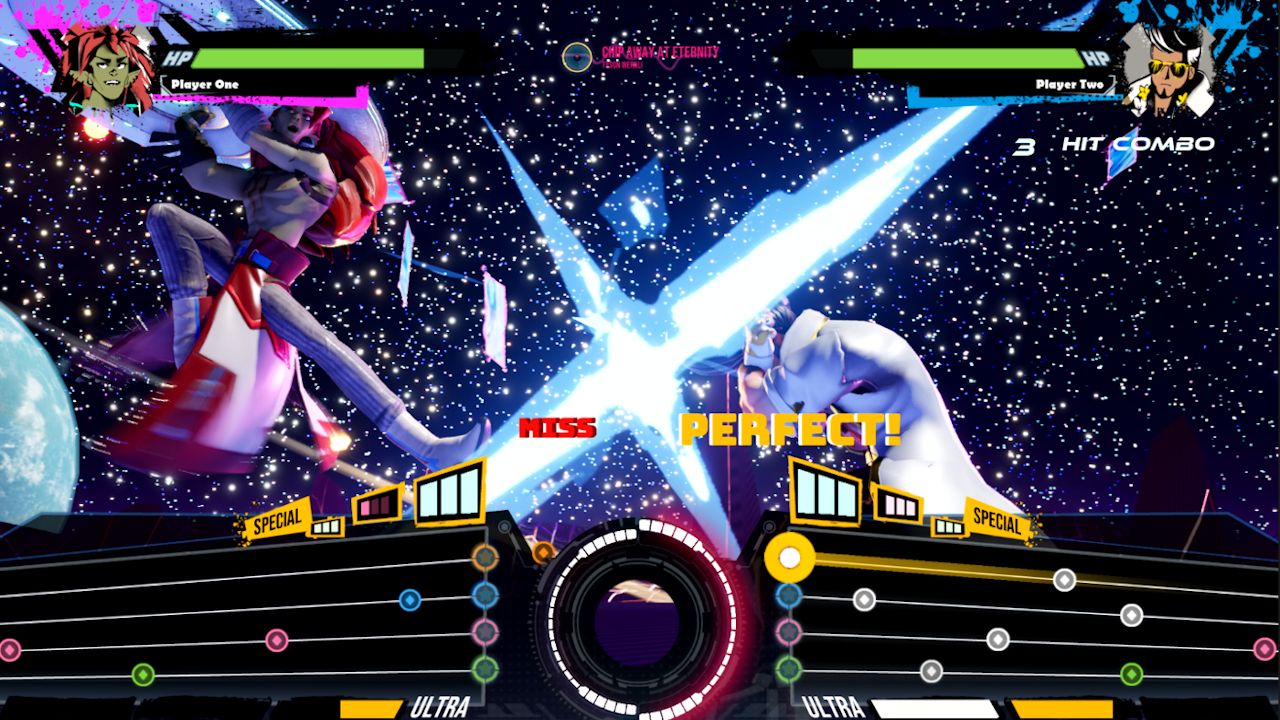God of Rock attempts to be a rhythm-based fighting game, but several design decisions prevent Modus Studios' latest from finding its groove. Today's popular fighting games are filled with charming and memorable characters, and most rhythm games have catchy tunes that easily get stuck in players' minds. While God of Rock leans much more into being a rhythm game than a fighter, it also features a cast of quirky and interesting playable characters. However, its cast and gameplay fail to mesh with a rhythm game's most important trait: its music.
God of Rock's cast of twelve playable characters presents a wide variety of personalities and charm. Each character has a minimal amount of story expressed in the game's Story/Arcade Mode through short cutscenes and unique dialog - some of which changes depending on which characters are facing off in the one on one battles. However, much like the minimal story of games like Twisted Metal, each story begins with a character disappointed with their situation until a mysterious figure appears before them. The God of Rock promises to grant their grandest desire if they compete in his tournament.
Arcade mode has players choose a character to fight through the God of Rock's cast to reach the game's final boss. Both players must input the correct buttons at the right time as the notechart rests below the two characters and their flashy battle. Special and Ultra techniques can be activated in the heat of battle to damage or hinder an opponent's performance. However, the chaotic battles are hard to enjoy while trying to keep an eye on the notechart, making God of Rock feel like it's two different video games simultaneously rather than a game whose mechanics complement and enhance one another.
The failure of cohesion does not stop there. Eight vibrant stages are currently available in God of Rock, many of which feel like a nod to locations from games like Final Fantasy 7, Resident Evil 4, and even Cyberpunk 2077. Unfortunately, these locations and the more than 40 original songs featured in the game rarely complement each other. It feels like a missed opportunity to have specific musical tracks tied to particular locations or characters in the game. Doing that would have heightened the connection players have with each character and helped make the game's predominantly electro-pop music more memorable.
God of Rock also supports Local and Online multiplayer, Training modes, and a Track Editor mode. Playing matches with a friend highlights how unbalanced the game's characters can be. Certain characters have a playstyle that requires time to charge up, while others can devastate opponents as soon as a song begins. Still, the game's overly simple unique attacks can be easy to spam, resulting in chaotic matches that are nearly impossible to keep track of. The game would also benefit if its notecharts were formatted differently. Rhythm games like Kingdom Hearts: Melody of Memory and Theatrhythm manage to display actions enhanced by nailing the rhythm of a level, something God of Rock struggles to do.
Tutorials for the game's complex Track Editor currently need to be included. However, using it with some time, patience, and an active mod community, PC players can share custom songs through the Steam Workshop. God of Rock's music list feels more electro-pop than Rock, but hopefully, that ratio can be adjusted with the help of mods and future updates. Still, God of Rock's characters are creative enough to make an intriguing 2D fighter. Unfortunately, its gameplay fails to be fun enough to attract fans of rhythm or fighting games occupied by many other options that do everything better.
Source: Modus Games/YouTube
God of Rock is available now on PC, PlayStation 4, PS5, Xbox One, Xbox Series X/S, and Nintendo Switch. Screen Rant was provided a Steam download code for the purpose of this review.


